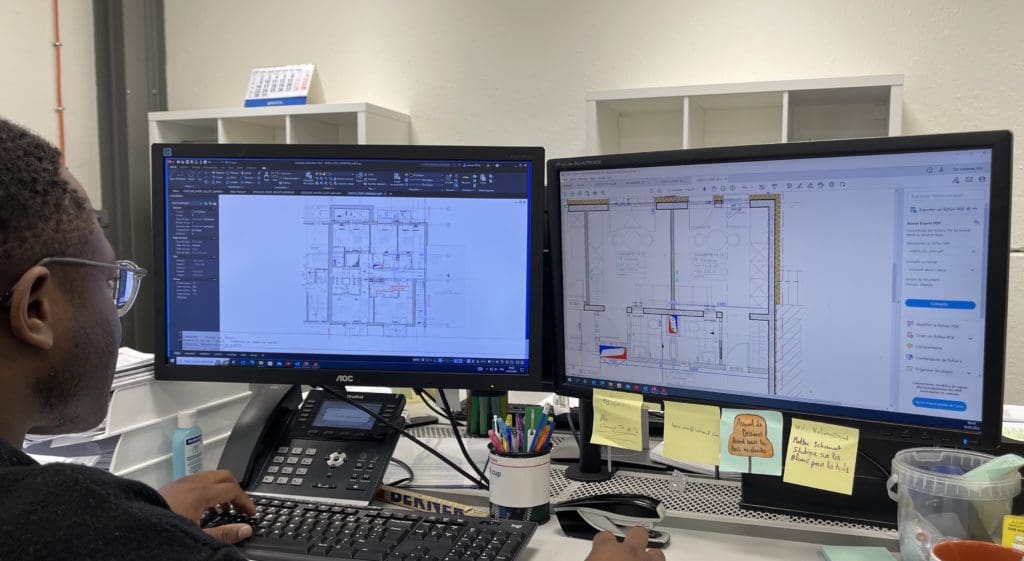-
+352 26 55 03 43+352 26 55 03 43
-
Monday - Friday: 8:00-12:00 13:00-17:00
-
ContactContact
Co-living is increasingly becoming a part of the Luxembourg real estate landscape. Faced with very high acquisition costs and rental spaces not always suited to the living situations of active people in the Grand Duchy, developers and other stakeholders are developing this offer that clearly meets a need and is no longer just a trend.

Co-living involves sharing a large living space, intended for flexible stays, but mainly short-term. Divided between private and common areas, offering a high level of service. In addition to private spaces, which generally correspond to bedrooms and bathrooms, there will be a kitchen, a living room, a gym… This allows roommates to build social connections while enjoying a turnkey accommodation, even in cities where they have just arrived.
This type of housing is mainly aimed at:
Whether they are students passing through for a long-term internship, a recent graduate who has obtained their first job, or a more experienced professional on a defined mission. The co-living offer perfectly meets this trend with expatriates who have not yet found a fixed place of residence, or ‘digital nomads’ more attached to a good wifi connection than to the walls of a dwelling.
Today, the new generation is already used to finding this type of housing in other European capitals. They therefore expect this type of accommodation in Luxembourg as well. Projects are starting to multiply in the Grand Duchy, especially in major urban centers.

Rental rates generally include access to private and shared spaces as well as a package for electricity, heating, and water, as well as Internet access, household linen, and cleaning of common areas. Additional small concierge services can also be added.
With a relatively small private area (usually 10-15 m2), these accommodations are rented at prices above the market thanks to the ‘all-inclusive’ offer. This allows tenants to free themselves from all administrative tasks.
The short-term lease system also offers freedom to tenants and security to the owner, as demand remains high and a waiting list is generally the norm for this type of housing. Corporate relocation services even become partners to install new arriving employees within their companies.
Co-living is very successful in several European capitals such as Amsterdam, London, and Paris, and Luxembourg meets all the criteria in terms of housing needs and target populations.
Today, communal living is no longer a marginal phenomenon, but a new real estate product that interests investors. Young people are much more mobile and it is necessary to take all this data into account.
The return on a co-living building will always be higher than that of one divided into apartments, in addition to providing flexibility to all parties as we have seen previously.

Today, we support developers in the realization of co-living projects like in Cessange with a building of 21 units, including 15m2 rooms with their private shower room, a kitchen, and a common room. We are in charge of ventilation, heating, regulation systems, and sanitary appliances. From the study with our client to the implementation, we are partners to ensure the best performance.
We are also active in projects transforming existing buildings into co-living spaces. Once again, our expertise allows us to support the owner, from the feasibility study of the project to performance calculations and design.
It is important to communicate well with the services of the Municipality where the project is being developed to comply with all building layout requirements. Indeed, co-living meets a demand but must also comply with current regulations!